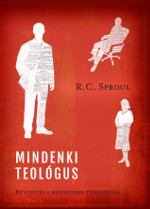Hungary's Ineffective Church
by Robert E. L. Rodgers
The notion of Hungary was touched for a while by the Reformation and later by Puritan influence. Centuries later, just after the Second World War, the Lord was pleased to revive his work there. That particular quickening may well have been God's provision for churches about to face the trauma of life under Communism. But the spiritual climate in Hungary is now very low. As this article will show, this state of affairs is illustrated by the Hungarian Reformed Church (HRC), which is the largest, most influential Protestant denomination and the one with the longest historical tradition.
No revival
Sadly, some Hungarian believers still try to convince themselves that they enjoy the blessings of revival, but revival has long since evaporated. An extensive refurbishment programme involving church, seminary and school buildings is sometimes regarded by believers as renewal (they realise they can no longer talk about revival).
Sadly, too, churches have failed to embrace the opportunities for evangelism afforded by the political changes of 1989. Distrust and tension between and within denominations have resulted in a lack of cohesion. Baptists, Pentecostals and Methodists, for example, are viewed by the HRC as sects, and there is little sign of any effort being made to overcome the serious differences that exist between professing Evangelicals. Yet, ironically, some of the denominations with which the HRC refuses to co-operate are members, alongside the HRC, of the World Council of Churches, an organisation committed to unbiblical ecumenism.
Financial relationship
Meanwhile, the cults are pouring into Hungary, and even the exponents of witchcraft are seeking recognition as a church. In recent months the Hungarian Government has been in dialogue with Roman Catholic and Hungarian Reformed leaders to establish criteria for the recognition of a 'church'. Suggested criteria have included 'the continued existence of a group for one hundred years or more', and 'having more than ten thousand members'. Clearly, while such principles would exclude many new and controversial cults and sects, they would also exclude small but vital evangelical groups.
There is a close financial relationship between the government and the established churches. The government supports the latter out of taxes and this support is seen as vital for the churches' continuance. In the HRC, financial giving by congregations is woefully inadequate, and great reliance is placed upon Western help.
Since 1989, the HRC has sought to recover church property formerly nationalised by the Communists. Many of these buildings have been handed back, but in a very dilapidated condition. However, with government funds and Western assistance, they are being refurbished, some of them on a lavish scale. But, paradoxically, quantities of foreign humanitarian aid have been left stacked in church premises, undistributed and left to decay. That which costs little is worth nothing!
Collaborators
Another cause for disquiet is the fact that no action has been taken by the congregations against leading churchmen who formerly collaborated with the Communist authorities. On the one side there are former collaborators, and on the other there are Christians who suffered because they refused to embrace Communist ideals. Some pastors were defrocked, others were repeatedly arrested and experienced lengthy periods of interrogation. Others were banished to outlying districts where they could have little influence on the churches, while a number endured the rigours of labour camps.
Theological confusion
Theologically, like other denominations, the HRC is in a confused state. It runs four theological seminaries, and higher criticism is taught in each of them. Barthianism has been the dominant influence, even from before the Communist take-over. In fact, in Hungary it is a mistake to equate the little ‘Reformed’ with true Calvinism. The ‘John Calvin Publishing Company’ of Budapest publishes books by Karl Barth and Rudolph Bultmann!
This theological confusion extends to 'Evangelical' groupings within the HRC. They, too, are divided, three such groups scarcely speaking to one another. In one, the leading pastor is Barthian and dispensational, and teaches in a Bible school that has a statement of faith capable of both Arminian and Calvinistic interpretation. There is little emphasis upon evangelism within the denomination, though some missionary awareness has been fostered by a missionary institute formed by Dutch friends of the HRC. If there are six pastors who are Calvinists, that is the limit.
Ineffective
Not all the evangelical contributions from the West have been helpful to the Hungarian churches either. Elizabeth Elliot is an occasional visitor to Hungary and is reported as having taught the Kenosis theory there. Hungarian Evangelical publishers do not always fully understand the Western material they reproduce in translation, and the harmful effects it could have on readers. One such volume is Harry Emerson Fosdick's book on the social gospel. It was translated many years ago in Hungarian by one of the leading Barthian scholars.
In Hungary then, as in many countries, the church is largely ineffective. Only God can deal with this problem and therefore his people need to take upon themselves the burden of the prophet and cry, 'Wilt thou not revive us again in the midst of the years?'
Evangelical Times,
August 1999
How can you get saved?
"Believe in the Lord Jesus, and you will be saved, you and your household." Acts. 16:31
